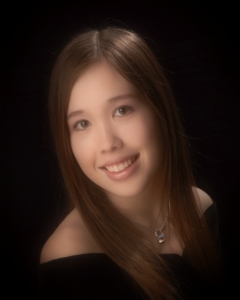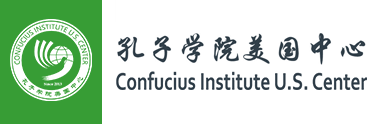Rachel Lietzow
Unexpected Opportunities
By Rachel Lietzow
 My Hongkongese mother started me off on my Chinese learning path by teaching me Cantonese from childhood. One of my first foreign language fumbles happened when I was a toddler. I still hear about this story today—my mother chuckles when she describes how difficult it was to teach me how to say “bone” in Cantonese, pronounced gwat. Somehow my imitation came out as “brat.” She would tell me the proper way of saying “bone” each day until I could pronounce it. I never would have guessed that this was simply the beginning to my interest in foreign language. Fast-forward a decade, Cantonese had taken a special place in my life—it is not only my roots and memories but also my connection to my Hong Kong family.
My Hongkongese mother started me off on my Chinese learning path by teaching me Cantonese from childhood. One of my first foreign language fumbles happened when I was a toddler. I still hear about this story today—my mother chuckles when she describes how difficult it was to teach me how to say “bone” in Cantonese, pronounced gwat. Somehow my imitation came out as “brat.” She would tell me the proper way of saying “bone” each day until I could pronounce it. I never would have guessed that this was simply the beginning to my interest in foreign language. Fast-forward a decade, Cantonese had taken a special place in my life—it is not only my roots and memories but also my connection to my Hong Kong family.
My curiosity about Chinese culture grew further upon my introduction to Mandarin, which came through watching a Mandarin-dubbed historical Korean television series. Although I barely understood anything the first time hearing Mandarin, the interesting sounds of the language did not fail to inspire me. My young mind spiraled with questions—why do some Cantonese words bear no resemblance to the same words in Mandarin? Why are there two different systems of writing? What parts of the languages overlap? Not knowing any other way to answer these questions, I settled on trial-and-error. After about three years of watching television shows in Mandarin, I grew comfortable listening to Mandarin speakers. Unfortunately, my hometown did not offer many opportunities to meet them. I still was uncertain about my ability to speak the language myself.
Coming to the University of Kentucky in 2015, I quickly made many Chinese international friends. Through them, I found out about the Confucius Institute. They invited me to a Chinese New Year celebration hosted by the Confucius Institute, called “East Meets West,” a function that bridged cultural differences through performances of fashion, music, and dance. The atmosphere was one of excitement and anticipation. That evening, my pride in Chinese heritage was reinvigorated. I am extremely grateful that the Confucius Institute hosts so many events that teach Chinese culture—I had never expected to find pieces of China in Kentucky.
My next encounter with the Confucius Institute came when I was given the opportunity to represent the UK in the Chinese Bridge competition at the University of Maryland. Besides granting me the chance to see Washington D.C. for the first time, the Confucius Institute made it possible for me to meet passionate Chinese learners from across the nation. As a freshman, I had never participated in an event like this, so I initially did not know what to expect. The idea of having to memorize a speech and compete had scared me. However, everyone I met at the competition was extremely personable. We came from different backgrounds and learned Mandarin at different times and in different ways. A common interest in Chinese language and culture brought us together. The Chinese Bridge left me with many new friends and memories. This event not only displayed a talented group of Chinese learners but also presented many unique stories.
A few of the competitors described their experiences studying abroad in China. Their stories highlighted the abundance of learning opportunities in other countries and the wonderful memories that marked a new understanding of Chinese culture. These speeches particularly inspired me to study in China, which I did this past summer at Zhejiang University. My Mandarin has improved since, and I have met many friends from around the world in the process. Through its many opportunities, the Confucius Institute has impacted my understanding of China and has furthered my dreams.
